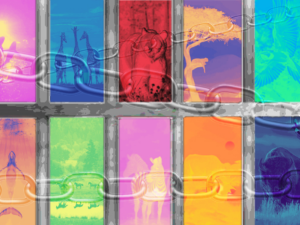MIT panel talks tech, human rights
April 20, 2016
Global Conflict is now about to go viral. The abuses of human rights, like those occurring in Syria and Ukraine, are among the next generation of international travesties. Due to technological advances, the bloodshed can be displayed for a worldwide audience that can do nothing but observe. While unmanned drones, hi-res cellphone cameras and vast social networks have made reporting global chaos much easier, technology has done little to mitigate the breaches of human rights that are being recorded.
The MIT Center for International Studies recently addressed these issues during their latest Starr Forum: Human Rights and Technologies. Speakers gathered to present the different ways in which they are using technology to help promote and document universal human rights.
Jay Aronson, Associate Professor of Science, Technology, and Society in the MIT History Department, moderated the forum. He is the founding director of the Center for Human Rights Science at Carnegie Mellon University.
“Rather than speaking in generalities, or propagating some type of utopian fantasy, if we can just get the right technology then an era of actual peace may be ushered in,” Aronson said. “We want to talk about concrete systems that have been developed to deal with very specific challenges of documenting conflict situations.”
Hauwa Ibrahim, a prominent Nigerian human rights lawyer, was present in the audience to observe the innovations that were billed as the next form of humanitarianism. She is currently experiencing the arduous human rights battle first-hand by working to battle the bloodshed brought on by the terrorist group Boko Haram. She has been notably recognized for her work representing those who are condemned by Islamic Sharia law, which doles out incredibly severe punishments for civil offenses. In 2005, Ibrahim was awarded the Sakharov Prize for Freedom of Thought for her work advocating for human rights. Other noteworthy recipients of this award have been Nelson Mandela and Malala Yousafzai.
“If you steal, you have your limbs amputated. If you commit adultery, you are stoned to death. If you drink alcohol, you are flogged 100 times publicly. Armed robbery may get you crucified,” she explained in an interview with the Journal. “Over the past year, I have defended 107 cases, mainly women and children who have had their limbs amputated.”
Nigeria recently marked the two-year anniversary of the 2014 Boko Haram kidnapping of 276 girls were forcefully taken from the Government Girls Secondary School in Chibok, sparking worldwide outrage. The girls have yet to be located. Ibrahim expressed her frustration about the ineffectiveness of recently advanced technology during the frenzied search for the girls.
“You can imagine, with the technology of drones, that [the girls] could have been picked up so we would know where they are, and maybe they would assist a little bit,” she said. “But two years after, we are still trying.”
Although the issues are glaring, Ibrahim remains optimistic that as technology advances, so will our capacity to help humanity.
“I think the more we have this information, the more empowered we are to make decisions,” she said. “Technology is the future. We shouldn’t shy away because we don’t have a perspective.”
Panelists took turns presenting the ways that they are using new technology to document, and hopefully alleviate, worldwide conflict.
Sucharita Varanasi, an attorney at Hinckely Allen & Snyder LLP, described her work with Physicians for Human Rights as the senior program officer and MediCapt project manager for the program on Sexual Violence in Conflict Zones. Medicapt – a program developed to document sexual violence – was implemented in the Democratic Republic of the Congo which has been categorized as the rape capital of the world.
“There’s so many issues with sexual violence. There’s so much stigma and shame attached to the crime.” she explained. “Survivors are often ostracized for being sexually violated. The sad thing is, is that despite all the courage and bravery it takes for these women to come forward, so many of these cases fail for lack of evidence.”
She highlighted the relative success that the MediCapt App has experienced to document the countless sexual assaults that local physicians witness in the war-torn DRC. Before the introduction of electronic documentation, she claimed doctors were sometimes writing diagnostics on the back of napkins, or whatever scrap of paper they could find. The battle will continue to be an ongoing series of trial and error, she shared, but she remains hopeful.
Christopher McNaboe, from The Carter Center’s Conflict Resolution Program, presided on the panel and presented the Syrian Conflict Mapping project that he is credited with developing. He displayed his research, which diagrammed and detailed all of the military forces in Syria, their origins, and affiliations. The Carter Center is partnered with the secretive, intelligence-linked firm Palantir, which has received some criticism for its close relationship with the United States security establishment.
Sasha Costanza-Chock, an author and Associate MIT professor, stood up and voiced his concern over the research McNaboe and his colleagues were conducting.
“I’m really, really troubled by the work that you’re doing at the Carter Center and their partnership with Palantir,” he said, directed at McNaboe. “Their primary clients are all the various branches of the intelligence agencies. It’s very sexy technology, I understand, but I think there are a lot of unintended consequences.”
McNaboe did not deny the links that Palantir has with various intelligence agencies, but dismissed Costanza-Chock’s notion of danger.
Michelle Nhuch, MIT Director of Public Programs, spoke with the Journal upon conclusion of the event. She illustrated how essential it is to keep communication open, in terms of technology and human rights.
“It’s a very important conversation. I am thrilled that we were able to bring these speakers to MIT.” she said. “I think that there are limits to technology. Technology alone will not solve the problem, but I think it sheds light on areas that we can’t see.”







